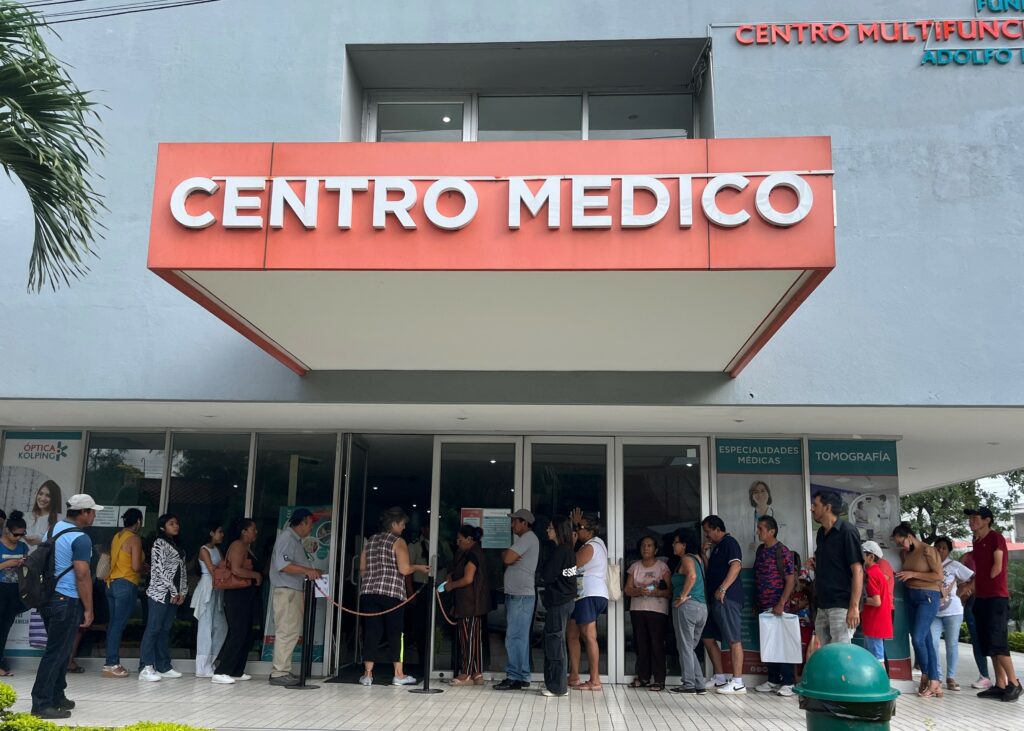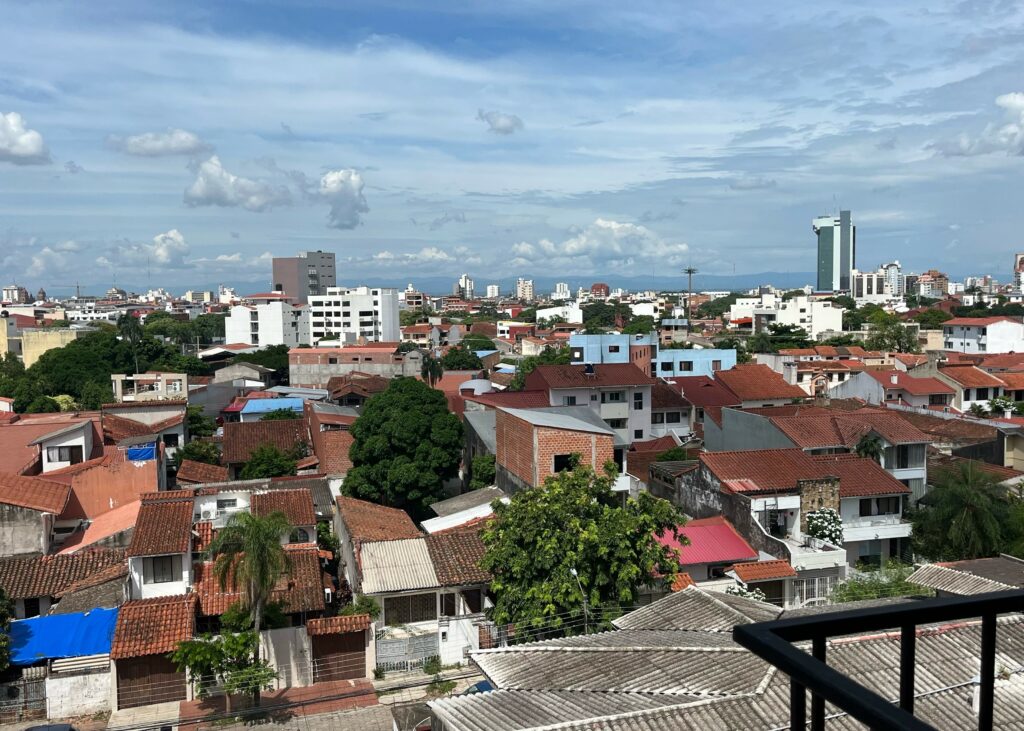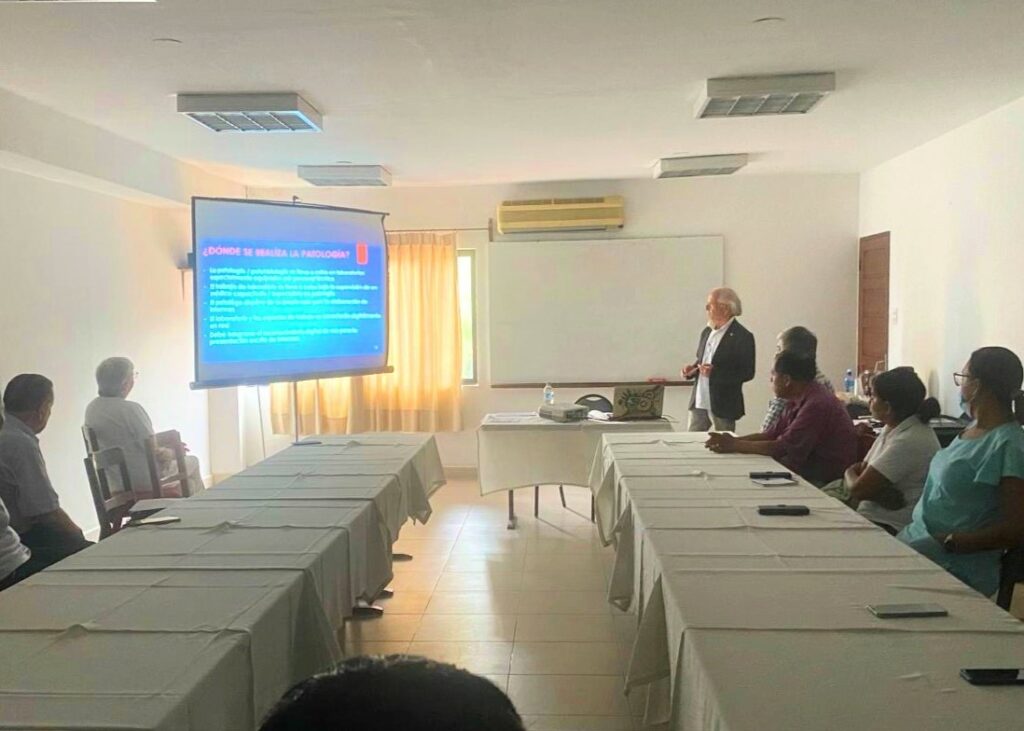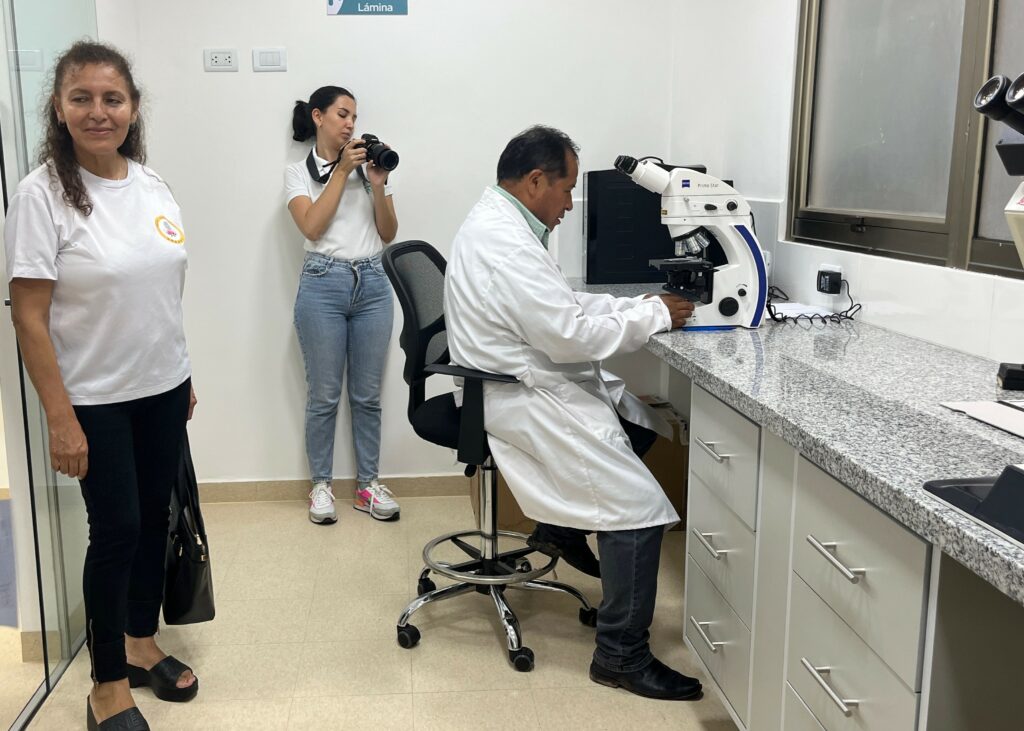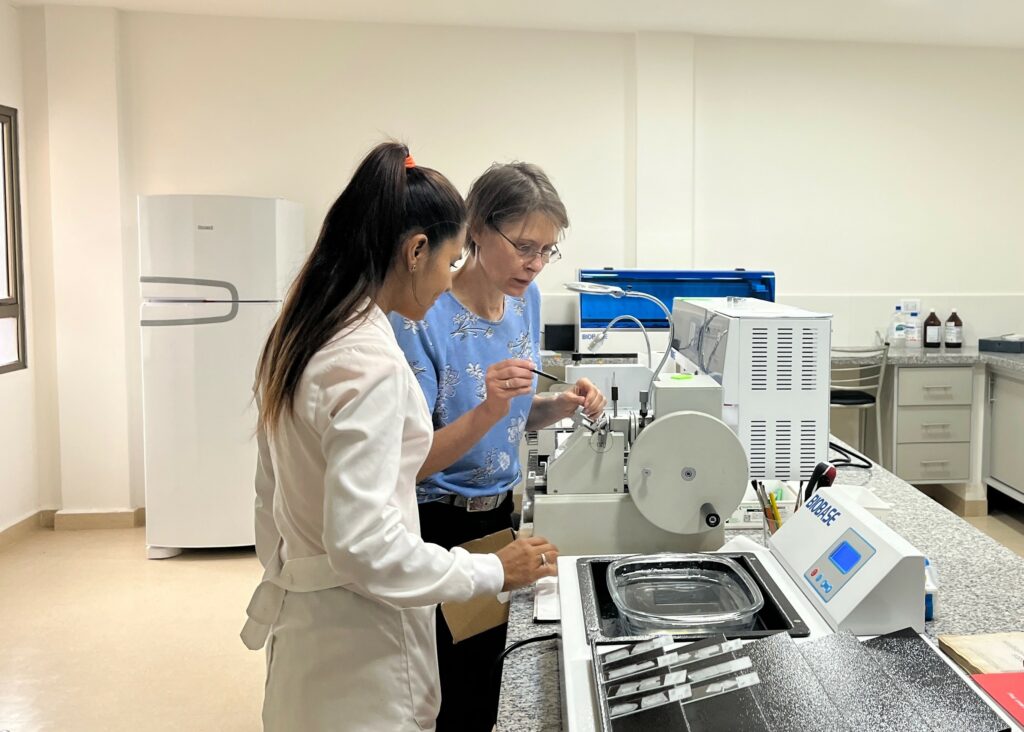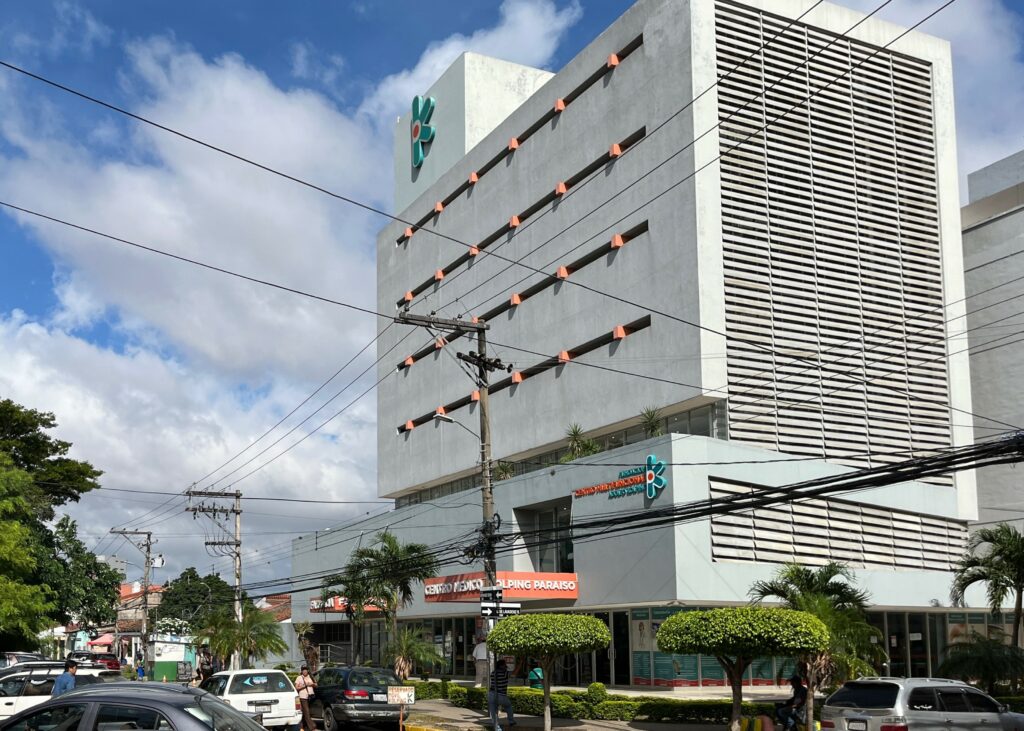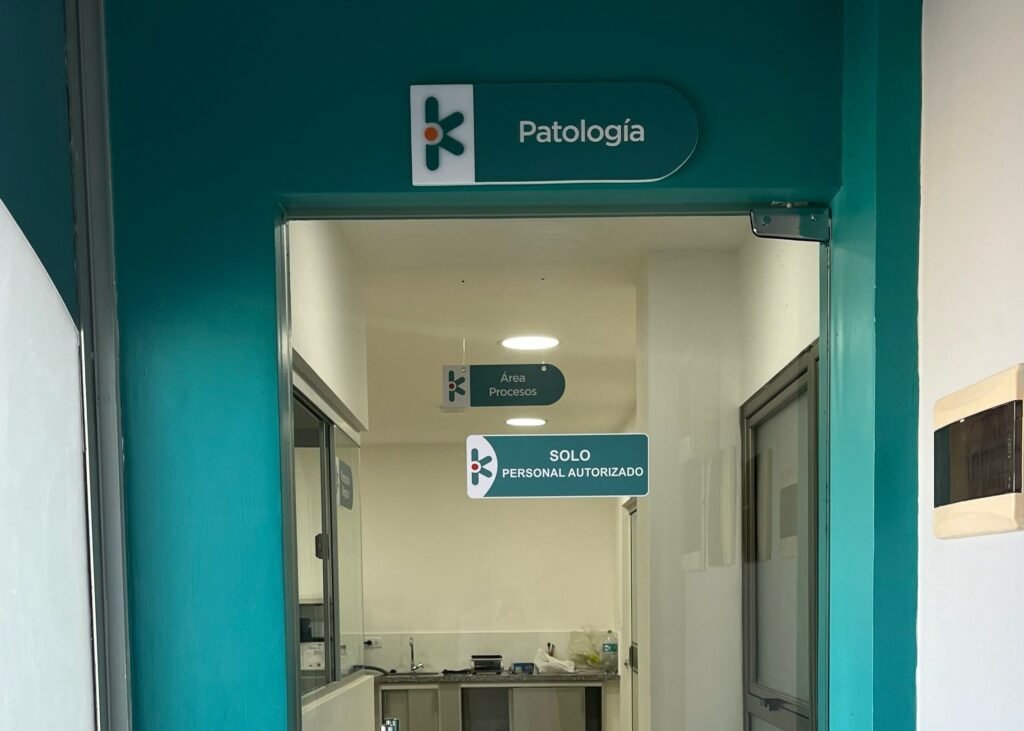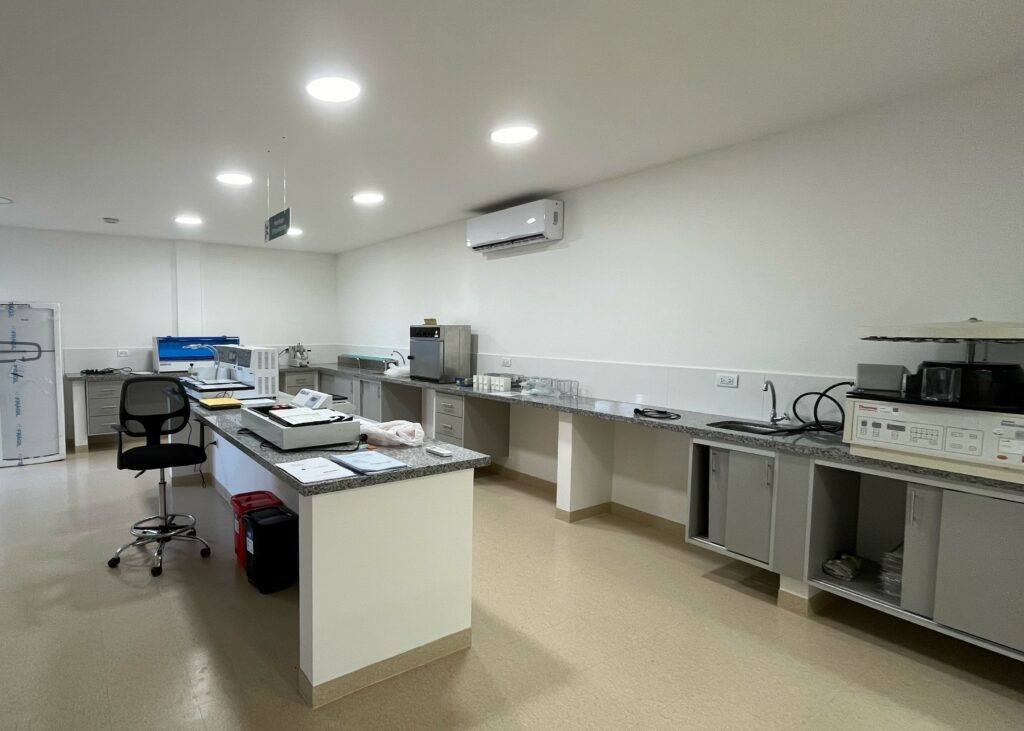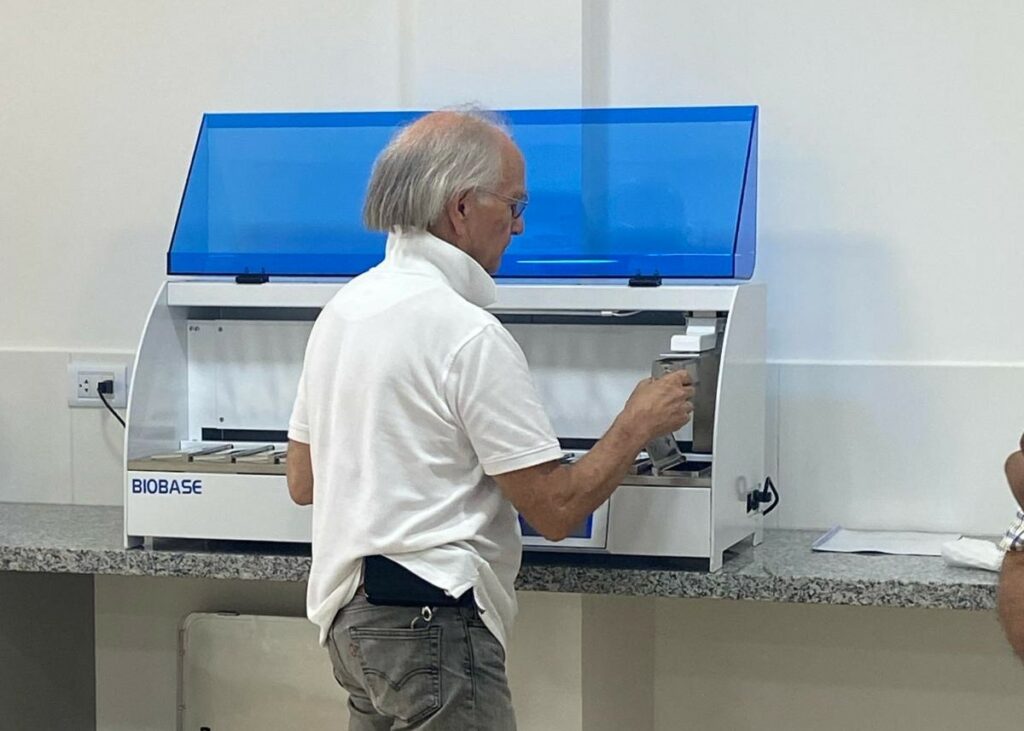Project Overview Bolivia
If you have any questions about a project or photo that interests you and would like more information, please use our contact form to reach out. We would be delighted to provide you with information about our past and upcoming projects. These include our laparoscopic training program, initiatives for breast and cervical cancer prevention and treatment, obstetrics and ultrasound training, as well as emergency and anesthetic training
General Information about the Project
Providing highly specialized medical care (Patho-Histology – tissue diagnostics) for the population of Bolivia at affordable prices.
The project began with a request from Hanne Fleischmann of the Missionary Medical Institute Würzburg (MEDMISSIO) on February 18, 2021, to Prof. Lobeck, asking if he could help set up a histopathology laboratory at the Kolping Medical Center in Santa Cruz, Bolivia. Due to delays caused by the Covid pandemic, planning began later than expected.
In December 2021, Thomas Dietze, the CEO of the Kolping Center Santa Cruz, requested a laboratory plan and a list of necessary equipment. In 2022, a clinic partnership project (GIZ) was initiated between MEDMISSIO Würzburg and Kolping Santa Cruz. The project is managed by Hanne Fleischmann, who has set up several clinical laboratories in Africa. The technical leadership is provided by pathologist Prof. Dr. Hartmut Lobeck, who previously established a similar laboratory in Eritrea and worked there from 2012 to 2020.
In March 2023, the GIZ approved the project for 2024 and 2025, allowing travel, stays, and some equipment to be
co-financed.
Some new equipment was financed by Kolping Bolivia from their own funds and arrived at the newly completed laboratory at the beginning of 2024. Several low-cost used devices were procured in Germany and shipped to Bolivia.
Project staff began their trip to Bolivia in February 2024. The laboratory rooms at the Kolping Medical Center in Santa Cruz were completed on time, and the equipment was ready.
After one month, the laboratory was operational: 10 laboratory technicians were trained in histopathology techniques, and one Bolivian pathologist was hired. In early June, the laboratory was certified by the Bolivian state health authority.
During the remaining duration of the GIZ project, the laboratory’s work will be monitored, perfected, and further developed.As originally planned, prerequisites for further specialized examinations (immunohistochemistry, molecular pathology) will be established. A telepathology connection is also planned for the near future.
